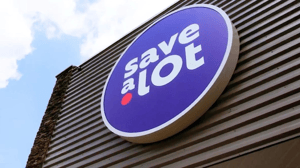Aldi leads the way in addressing refrigerant emissionsAldi leads the way in addressing refrigerant emissions
Target and Whole Foods also rank high, but grocers as a whole are not yet putting strategies into action

A new report from the green group Environmental Investigation Agency (EIA) shows grocers are making an effort to address refrigerant emissions in the U.S., but little has been done in terms of actual results.
The EIA’s bi-annual Climate-Friendly Supermarkets Scorecard shows that of the 16 companies graded, only three — Aldi, Target, and Whole Foods — were given passing scores. Nine retailers have improved their grades since 2022, but the EIA notes minimal improvement. On the other hand, seven saw their scores drop.
Companies are rated in the following categories: technology adoption, refrigerant management, and policy and commitments.
Based on reports from 2022 and 2024, the most progress has been made in the policy and commitments category. This category reflects the company’s commitments to adopt ultra-low Global Warming Potential (GWP) refrigerants in store equipment to decrease refrigerant emissions and engagement with policy and industry stakeholders on the issue of hydrofluorocarbon (HFCs) and refrigeration. Almost all of the retailers, 12 in total, have a public commitment to reduce refrigerant emissions, but only eight have a committed deadline for reducing HFCs.
The EIA said there was a notable decrease in the refrigerant management category across stores. This category assesses public disclosure of company average leak rates and efforts to reduce refrigerant leaks. Meijer leads the way with a 6.5% annual leak rate.
The leaderboard is as follows:
Aldi 74%
Whole Foods 55%
Target 44%
Meijer 39%
Kroger 37%
Publix 35%
Costco 27%
Walmart 26%
Ahold Delhaize 24%
Albertsons 21%
Trader Joe’s 21%
Giant Eagle 19%
H-E-B 14%
Wegmans 13%
Wakefern 8%
SEG 1%
Read more about:
Aldi U.S.TargetWalmartThe Kroger Co.AlbertsonsH-E-BCostcoPublix Super MarketsAhold Delhaize USAAbout the Author
You May Also Like






